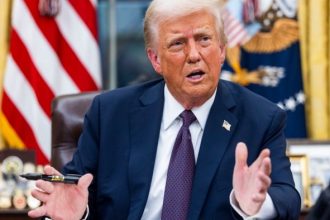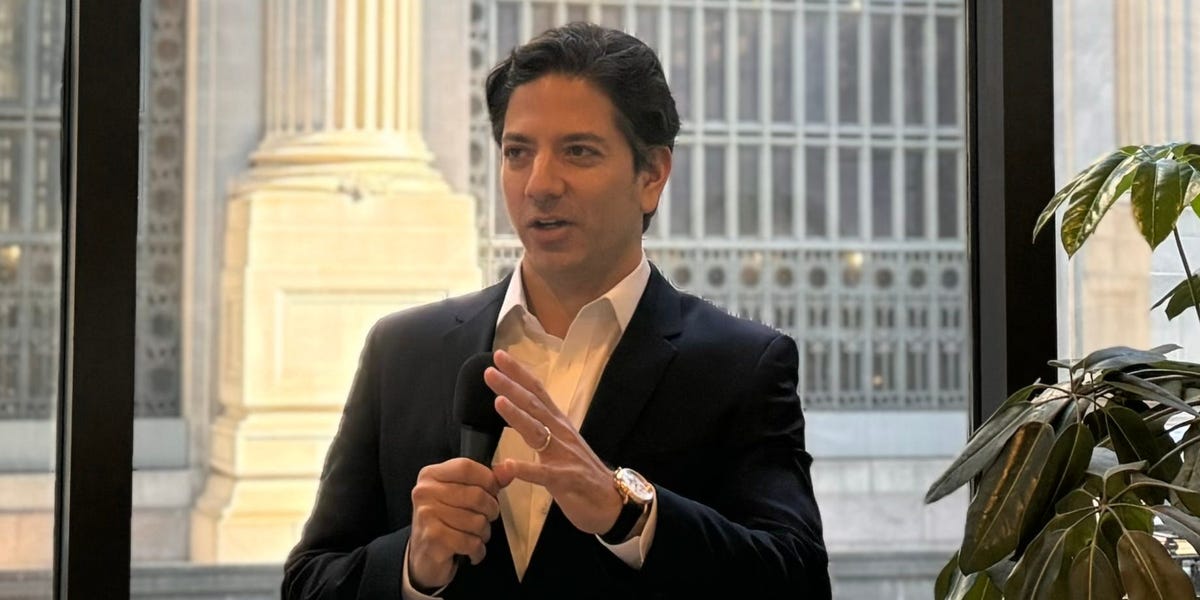In the summer of 2018, Rohan Doctor fell into a water cooler conversation with an investment banker that would change his life as he knew it.
Doctor, then a Goldman Sachs managing director who ran the bank-solutions group based in Hong Kong, was visiting the bank’s London office. He got to talking with a colleague responsible for structuring products for the bank’s clients who was complaining about how he couldn’t find anyone to focus on “this lucrative but complex” derivative transaction, Doctor told BI. The conversation, while brief, stuck with Doctor, who marinated on it during his lengthy flight back to Asia.
By the fall, Doctor had found a global bank willing to participate in the cross-border transaction worth tens of millions of dollars. Doctor remembers top Goldman exec Jim Esposito asking him how he did it and if he could do it again.
“It was serendipity,” Doctor answered to the former. To the latter, he remembers wondering, “well, what if you could systemize serendipity with data? I mean, it’s crazy that in today’s day and age, two adults have got to be thirsty at the same time, meet at a watercooler, chit chat, and swap information.”
Thus, Louisa AI was born inside the storied institution of Goldman Sachs. The AI startup was built to suggest potential deals based on the data it’s exposed to. It was the inaugural business in GS Accelerate, the bank’s internal program that encouraged employees to pitch startup ideas.
Last April, Louisa AI spun out of the Wall Street bank as an independent company. Earlier this month, Louisa AI raised $5 million in seed funding from five VCs including Gaingels and Blue9 Capital, a slew of Goldman Sachs partners among other friends and family investors, and Oxford University’s angel and seed funds. Doctor studied physics at the school 25 years ago.
The startup has secured five clients so far, including Goldman Sachs and Insight Partners, Doctor said. He added that other undisclosed customers include a management consulting firm, a private equity firm, a large bank in Canada, and one global exchange. It has suggested $800 million in deal values per quarter across a handful of clients, Doctor said. He declined to disclose a valuation.
How it works
Louisa AI aims to absorb who and what employees know by plugging into company CRMs, email providers, and other communication tools like Slack, Teams, or Symphony. Combined with independently ingesting about a million news articles a week, the technology is designed to proactively prompt deals based on people’s personal and professional connections and the companies or industries they specialize in.
Here’s a real example of this tech at play at Goldman from the pitch deck: Louisa AI reads an article about a company building a semiconductor plant in Taiwan. Louisa AI knows that a current Goldman employee used to work at the semiconductor company, and the AI knows a project-finance employee in New York. Louisa connected the two employees, combining one’s professional expertise and another’s relationship with the company to fund $6 billion of financing on a $10 billion project.
“Something along those lines did get connected at Goldman, and months later, they closed another very large transaction, and the client was blown away,” Doctor said. Louisa AI aims to “harness the collective network of the company” to offer “AI-powered deal prompts,” he added.
Under the hood, Louisa AI ingests 250 news sources globally and buys data from several third parties, like Crunchbase and FactSet.
In an article about solar panels, Louisa AI would link the words “solar panels” to “solar” and then to “renewables.” Then it would find the people at the firm who work in the renewable-energy industry. That same article might have a quote from Janet Yellen, and Louisa AI would highlight who at the firm is connected to her through emails and other communication. The tech knows who a given email is sent to, but not the content within the email, Doctor added.
Doctor says his startup’s edge over other CRM-type providers like Salesforce is that Louisa AI “is 100% for finance by finance,” wherein the taxonomy knows that leverage finance and high-yield bonds mean the same thing even though they are spelled differently. Louisa AI also has regulatory-grade compliance, privacy, and security that are built into the platform’s workflows.
Doctor said he plans to use the capital “opportunistically,” the startup is dialing up its sales and marketing strategy in New York and will grow that team as it closes deals. Some of the money will be used to sponsor doctorate and graduate students at Oxford who will research how to scale Louisa AI into other industries, such as fashion or healthcare, Doctor said.
Here’s the pitch deck Louisa AI used to raise $5 million to fund its AI-powered deal prompter.
Read the full article here





